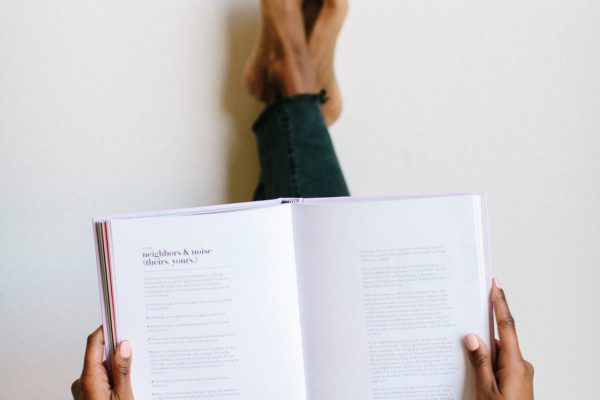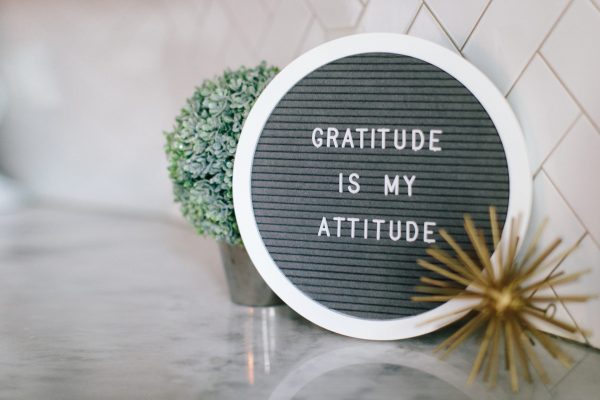What To Do When You Don't Feel Grateful
Many of us start out the new year thinking about starting a gratitude practice. You may notice that it can be hard to get started, but once you get going, that it’s easier and easier to find things to be grateful for. Part of it is getting into the habit of being grateful and the other is recognizing what is getting in the way of us feeling true gratitude.
I want you to think back to a time when you had something happen in your life that you were truly grateful for. It could be a present you got or an event that happened. It could be the birth of a child or a promotion for your hard work. It could be reaching a big goal that you had for yourself. Think about what was happening in your life at that moment. Picture yourself there.
![2832495-social-curator-03-2018-37[1] life coach, dayton, kidney disease, kidney transplant, chronic illness, toxic positivity, good vibes only, peace](https://shelbykhansen.com/wp-content/uploads/elementor/thumbs/2832495-social-curator-03-2018-371-pj66o70fyip47hl5fb123iyj6w97budn97twv2gt5s.jpg)
What are you feeling in your body?
What sensations are happening?
What are you thinking right now?
If you were able to create gratitude in your body right then, try letting it expand. Try letting it get bigger and bigger. Allow gratitude to fill up your whole body.

Thinking of the self-coaching model, gratitude is an emotion, created by our thinking about a circumstance.
This is amazing news because it means that we have the power to create gratitude simply by what we think. But we don’t always feel gratitude. The biggest way I block myself from gratitude, and you might be the same way, is that I tell myself I should be feeling grateful.
We love it when we feel gratitude, but so often we can’t produce it on demand. Do you want to know why?

Because of the story you are telling yourself.
If you think you “should” feel grateful, well that’s the quickest way to make sure you won’t be feeling true gratitude. Since gratitude comes from our thinking, when you are thinking anything with a “should” statement, it doesn’t create gratitude. “Should” only creates guilt and shame.

For a deeper dive into what shame is all about, I highly recommend reading any of Brene Brown’s books. They are incredible. Brene Brown tells us the difference between shame and guilt: “Shame is a focus on self, guilt is a focus on behavior.
Shame is “I am bad.”
Guilt is “I did something bad.”

I’ll give you a small example to clarify the point:
When I am dealing with my screaming 4-year-old, and I lose my cool and begin yelling instead of being patient, I will sometimes think, “I’m not a good mother, I should be better. He was a high risk pregnancy, I should be grateful he’s here, and I’m not right now and I’m a terrible mother for thinking that.”
When I have all those “should” statements in my thought line, it’s creating shame. For me, when I think “I should be grateful he’s here”, what I’m really saying is “I’m not grateful he’s here, and I should be.” That thought creates shame in my body. I have this shame from this underlying belief that “I am a bad person”.
The problem is not the screaming 4yo and my yelling reaction to him. The problem is the judgment I have for myself and that I made it mean there was something wrong with me. So, in that moment, no. I do not want to feel grateful that I have a 4yo.
And I know later, after it’s over, I have the choice of what I want to think about that situation. Do I want to perpetuate the guilt and the shame I have over how I behaved? Or do I want to comfort that part of myself who thought she needed to yell in order for her to get her way? The part of me that thought that was the only way to get the result that I wanted? No. I want to take care of her, in the moment and afterward, examine the story I’m telling about the situation, and then decide what I want to believe on purpose.
I can believe that I love him, I’m grateful for him, and sometimes it’s hard. I can embrace the ands of any situation.
I can believe that I am grateful for my transplant and sometimes I’m going to mess things up. Or I’m grateful for being able to live the life I have and there’s also going to be some hard times.
And here’s what I do believe.
I believe that “should” never drives my best action. I can hear it in my inner dialogue when it says, “this shouldn’t be this hard. They should do this, I should do that.” It’s a practice to drop “should” from your vocabulary. But I’ve proven to myself over and over that I never like how I feel when I believe the “should” thoughts. It doesn’t mean the “shoulds” don’t come up, unintentionally. It just means that I am the detective of my mind and I see when it’s trying to happen.
Here are 3 potential ways that I see people handle shame when it comes up:
- Ignore it and let it get bigger
- Pay attention to it and allow it
- Agree with it and not let it mean anything about you
When you think “should” thoughts and it creates shame, then you resist the shame because it’s uncomfortable and you don’t like how it feels. You resist processing it, so it builds up until you explode. It could look like yelling, trying to control everyone around you, or telling them all to leave you alone. And the result is that you end up not behaving how you think that you should, which ends up feeding into the shame cycle.
The second way is to allow shame to exist in your body and not push it away when it comes up. Allow yourself to process the emotion. Name the sensations in your body when shame comes up. Breathe into the shame, not to get it to leave, but to give your body the attention it deserves. Allow yourself to relax into the shame and not let it mean anything about you.
The third way is to agree with the “should” thoughts on purpose and release the shame. If I think I should be a better mother, I just agree with the “should” thought and not let it mean anything about me. Yep, I tell my brain, I should be a better mother. But I’m not. And that’s okay. We’ll try again next time and maybe do better then.

So how do we allow room for gratitude instead? I’ve got three parting ways to create gratitude from a place of love and abundance.
- Get present, recognize everything that exists in your life already. Even if it’s as simple as that you are still breathing, you still have something
- Decide on purpose that you want what you have. You want to be breathing. You want the people that are in your life to be there. You want to be in the house you live in. Dwell on all the things that you want that already exist in your life. Don’t worry about what you don’t have in this step.
- In the wanting of the things that you have in your life, allow yourself to savor them. Allow yourself to explore a time when you wanted some of these things but didn’t have them yet. Give yourself space to dwell on each thing. Send appreciation to whatever you have in your life, without expecting anything from it in return. This is the secret of where gratitude lives
Gratitude comes from wanting what you already have. I will leave you with a parting quote:
“Find your happiness, not by seeking more, but by appreciating what you already have.”
― Frank Sonnenberg
P.S. If your January resolutions have fizzled out already, or worse yet- you chose not to set any, you’re going to want to check this out. In my program I teach you not only how to start putting yourself first, I show you exactly how to do it while ditching the guilt. My clients learn how to love their bodies and get in the best health of their lives, given their medical circumstances. Come join us too!